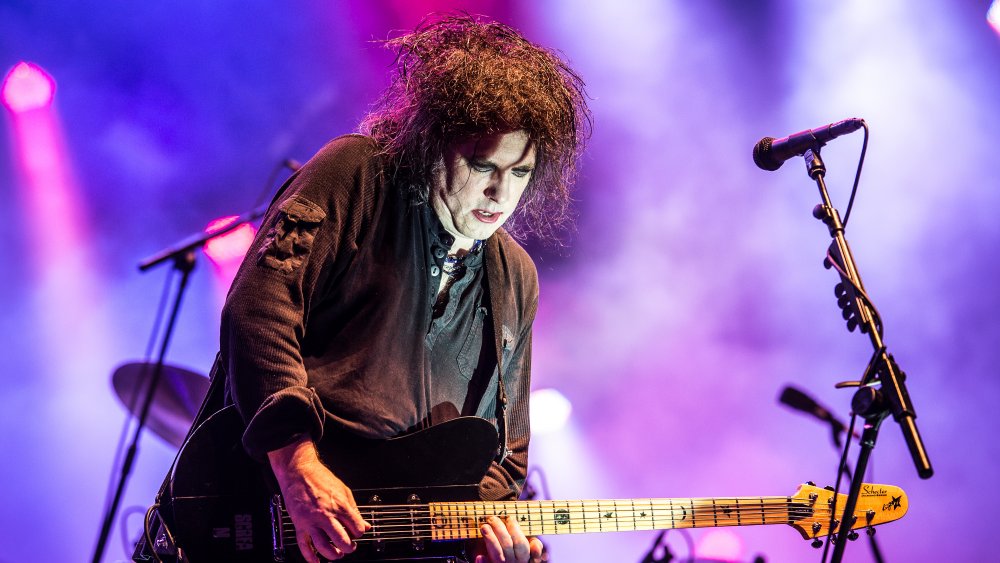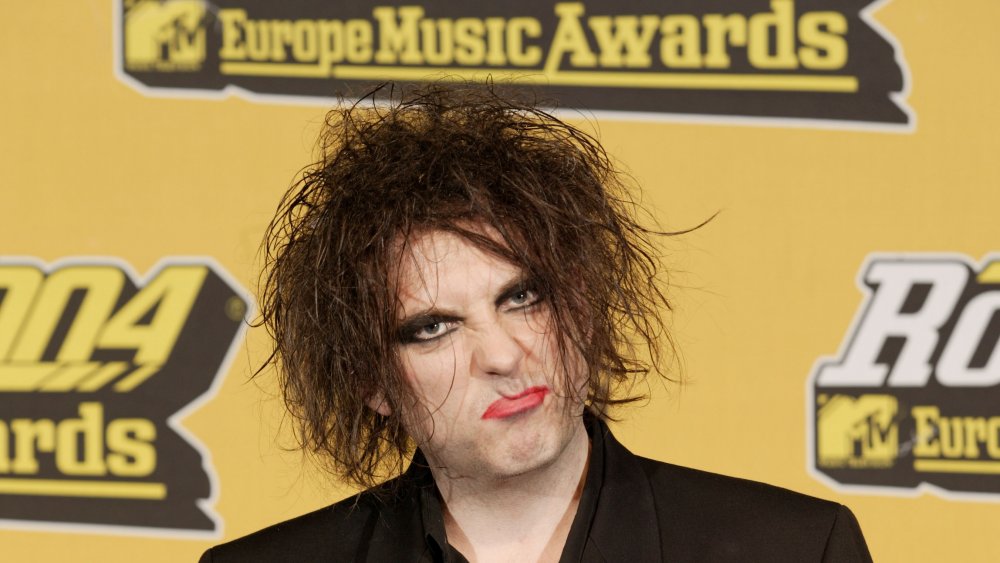The Hidden Meaning Of The Cure's 'Just Like Heaven'
In the pop music sphere, some artists craft their songs in a way that is pretty easy to interpret: take Madonna's "Like A Virgin" (about being touched for the very first time) or the Summer of '69 (you can do the math). Other bands can make it particularly hard to decipher what it actually was they were originally writing about (we're looking at you, Purple Rain). The Cure's catalog typically falls into the former category, with straightforward tunes like "Boys Don't Cry" or "Friday I'm In Love".
However, one song in The Cure's discography has stood out among the others, causing fans to question its bizarre lyricism for the better half of 30 years — "Just Like Heaven". "Just what is this scream/laugh/hug inducing trick?," Entertainment Weekly asked in 2005 when revisiting the '80s New Wave tune to deem it the 25th Greatest Love Song of All Time.
To Smith, the song makes complete sense, even going so far as to say "I'll never write something this good again," as Songfacts reports.
An ode to a special woman
Per frontman Robert Smith's analysis of the opening verse ("Show me, show me, show me how you do that trick"), the line is both a reference to his love of performing magic tricks in his youth and "about a seduction trick, from much later in my life," according to MentalFloss.
Yet, overall, the song has a very specific meaning about a very specific person. According to Songfacts, in an interview with Blender in 2003 Smith said that the song is about his wife Mary Poole and their star-crossed love as flatmates in London during the '80s. "The song is about hyperventilating – kissing and fainting to the floor," Smith told Blender. "Mary dances with me in the video because she was the girl, so it had to be her. The idea is that one night like that is worth 1,000 hours of drudgery."
For the ballad about Smith's muse, the band was given a lot of input from Mary herself (as well as the girlfriends of other band members) before the final version was cut. In fact, many of the band's flames hung out during recording sessions and critiqued the music: "The girls would sit on the sofa in the back of the control room and give the songs marks out often," Smith told Rolling Stone, via Songfacts. "So there was a really big female input."

